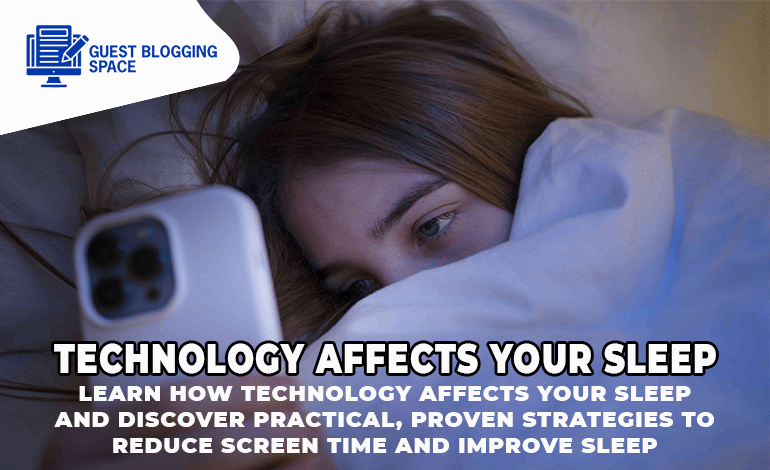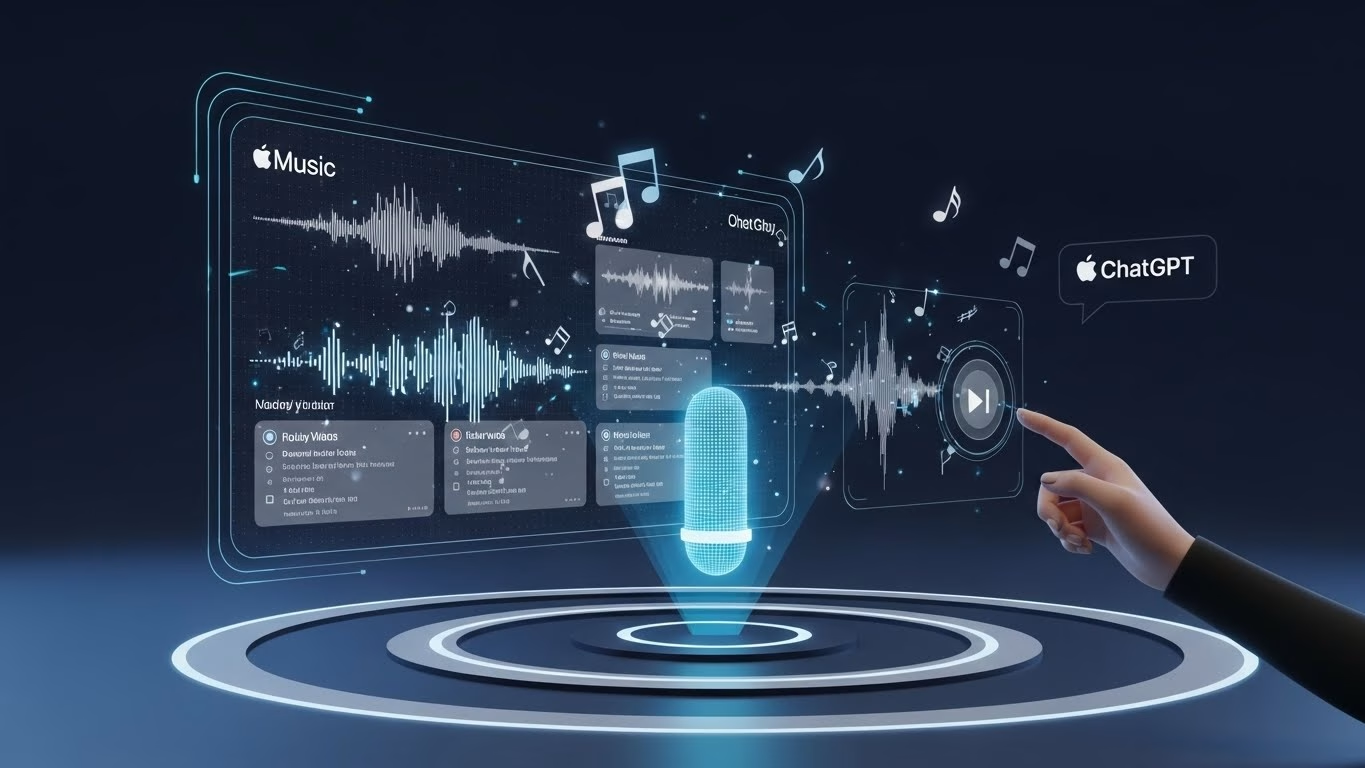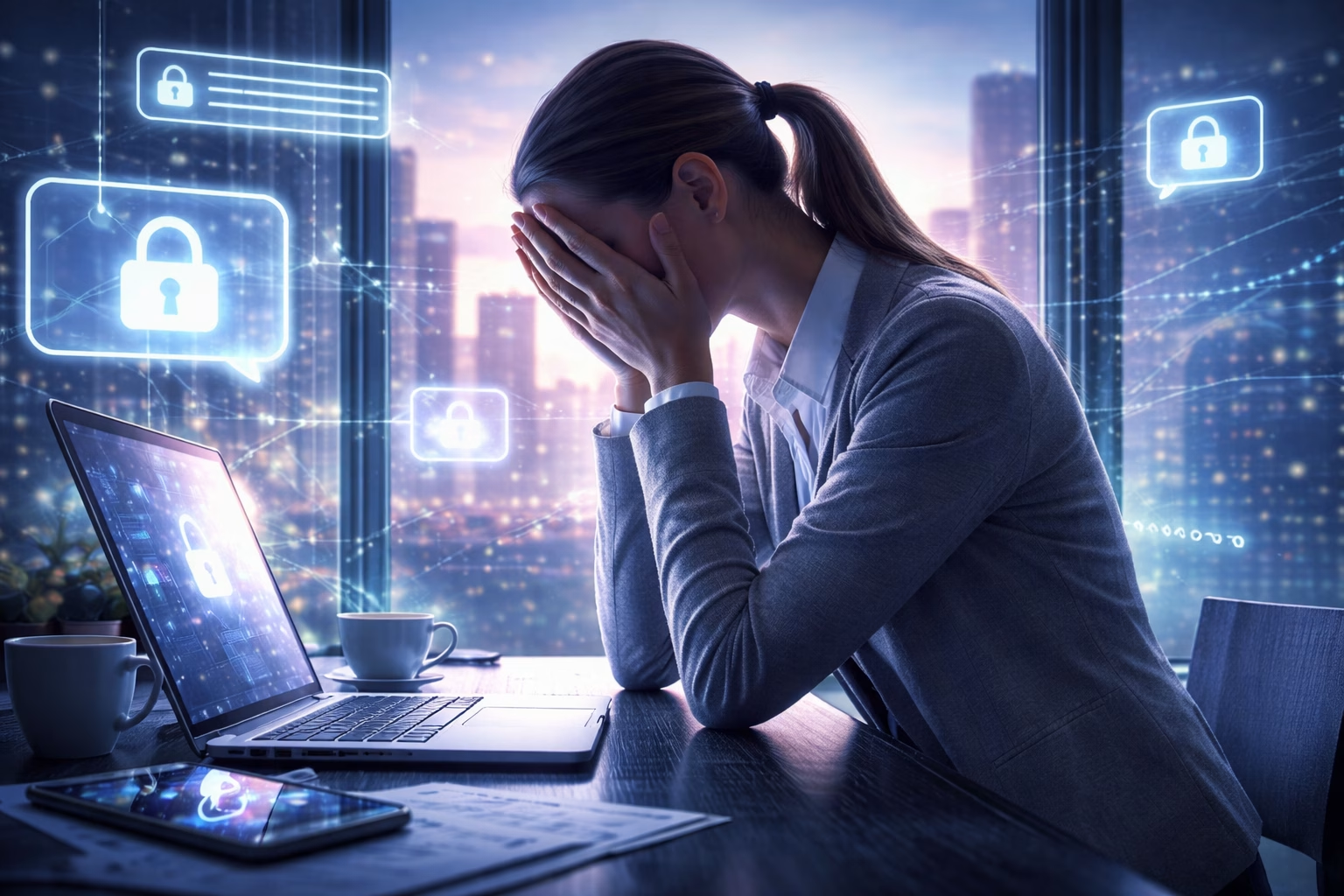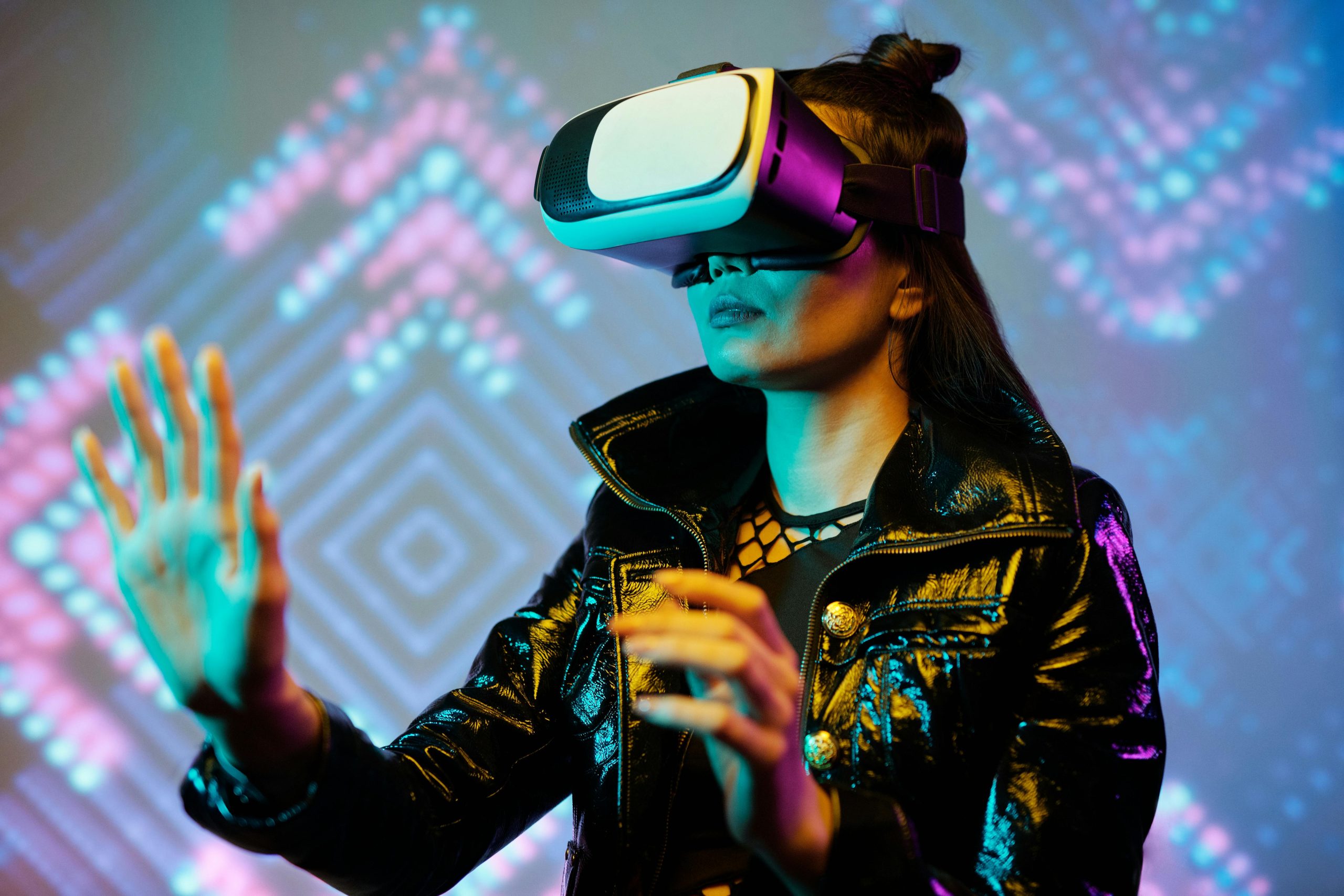How Technology Affects Your Sleep: Tips to Improve Rest

In our ever-digital era, technology has become an inseparable part of daily life—but it quietly interrupts one of our most important needs: sleep. Constant contact with the screen—whether it’s a smartphone, tablet, or laptop—especially at night, interferes with the body’s natural sleep cycle. The blue light emitted from these digital devices suppresses melatonin production, making it harder to fall and stay asleep. If you’ve ever found yourself tossing and turning after scrolling through social media or watching late-night videos, you’re not alone. Understanding how technology affects your sleep is essential for improving sleep quality, mental clarity, and overall well-being. By adopting healthy habits—such as reducing screen time before bed and enabling night mode—you can experience noticeable improvements in your rest and recovery.
The Science Behind Sleep Disruption
Blue Light and Melatonin Suppression
Most electronic devices – such as smartphones, tablets and laptops – emit blue lights, which may look harmless, but that may interfere with your sleep. This type of light interferes with the brain’s ability to produce melatonin, natural hormones that indicate your body that it is the lower air time. When melatonin levels fall, it becomes more difficult to sleep, and you are less likely to reach the deep, restructuring stages of sleep. Research shows that minimal contact for blue light before bedtime can delay your sleep cycle and reduce the general sleep quality. If you use a digital screen in late night, it is important to understand how technology affects your sleep – you can accidentally damage your sleep health.
Impact on Circadian Rhythms
Your body moves on an inner clock known as a circadian rhythm, which helps regulate sleep and waking cycles. But when you are exposed to artificial light from the phone, tablet or laptop – especially in the evening – it can waste this natural system from the balance. This light takes your brain into thinking that it is still day, and presses the sleeping time later and reduces the total sleep duration. Over time, this disorder can give rise to a situation called social jet lag, where your natural sleeping plan collides with your daily responsibility. Result? Weak immunity and metabolic problems such as fatigue, poor focus and even long -term health risks. It is important to protect the quality of your sleep and general good to be aware of the use of the screen after the dark.
Psychological Effects of Technology on Sleep
Emotional Stimulation and Sleep Onset
Not all screen time is made the same – especially when it comes what you see or read before the bed. To associate with emotional materials, such as intensive shows, news or debate on social media, can eliminate your brain and make it difficult to relax. This emotional stimulation increases mental vigilance, delays the time it takes to sleep and is often worsened in sleep quality. It is important to really open and support healthy sleep, to be intentionally about your night screen habits. Opt-or better for bullet, low enthusiast materials yet, connects your brain to relax at least one hour before the bed.
Technostress and Sleep Disturbances
In a world where we are always online, the pressure to be connected to a serious toll on our mental and physical health can be linked. This digital tongue, known as a techno stress, often leads to anxiety, irritability and sleep problems. When the phone buzzes by information or you are forced to respond to messages late at night, your brain remains in a state of vigilance. This makes it really difficult to rest, and it can reduce your ability and disrupt the ability to live. Setting digital boundaries and making screen -free zones before bedtime can help reduce this pressure and restore your natural sleep rhythm.
Strategies to Mitigate Technology’s Impact on Sleep
Implementing Screen Time Limits
One of the most effective methods to improve your sleep is by determining clear boundaries with your equipment. Limiting the screen time – especially during the first hour of the bed – can reduce the harmful effects of blue light and mental stimulation significantly. Establish a digital curfew signals on your body that it is time to vent it, which helps your brain for infection in a comfortable state. By moving away from the screen in the evening, let your natural sleep hormones do your work, and pav the way for deep, more restructuring comfort. Creating this habit in your night routine can lead to a permanent improvement in both sleep quality and general well -being.
Utilizing Night Mode Features
Most modern devices are now equipped with night mode or blue light filter settings – and using them how well you sleep, it can be a real difference. These properties reduce hard blue lights known to suppress melatonin, your body needs to sleep naturally. By activating night mode in the evening, you can limit the negative effects on your sleep cycle, making it easier to vent. Although it is not a complete solution, this setting is combined with other healthy gold habits – for example, reducing the overall screen time – can improve your sleep quality over time.
Establishing a Relaxing Bedtime Routine
What you do for hours before bedtime or can break sleep. To party in quiet activities – such as reading a physical book, practicing deep breathing or stretching lights – gives your body a clear indication that it is time to slow down. These resting techniques help relieve your brain from daily stress and prepare you for resting sleep. The installation of a smooth golden routine strengthens health habits, making it easier to sleep and healthy. The more you repeat this cool ritual, the more your body begins to tie it to the curved, forming a natural rhythm that supports deep, restorative comfort.
The Role of Environment in Sleep Quality
Creating a Sleep-Friendly Bedroom
Your environment plays a powerful role how well you sleep. Creating a sleep-friendly environment means going beyond closing the lights-it’s about preparing a place that promotes rest and reduces disruptions. This means keeping your bedroom cool, cool and dark, as even small sources of noise or light can interfere with your fall and sleep. Investing in a comfortable bed, blackout curtain or a white noise machine can make a noticeable difference. A pure, chaos -free bedroom safety and soothes your brain, making it easier to relax and float in deep, uninterrupted sleep.
The Importance of Physical Activity
Engaging in regular physical activity is one of the best methods to enhance your sleep quality. Exercise helps balance your body’s natural sleep-wake rhythm, alleviates stress, and makes it easier to fall asleep at night.But timing matters—intense workouts too close to bedtime may leave you feeling energized instead of relaxed, making it harder to wind down. To get the full sleep-enhancing benefits of exercise, aim for earlier workouts in the day or light movement, like yoga or stretching, in the evening. Striking the right balance can help you sleep more deeply and wake up feeling truly refreshed.
Understanding the Long-Term Consequences
Chronic Sleep Deprivation and Health Risks
Constant poor sleep can lead to a lack of chronic sleep due to the use of technology, which is associated with a variety of health problems – including weaker immune function, impaired cognitive performance and more risk of chronic conditions such as heart disease and diabetes. Understanding how technology affects your sleep is important to prevent these long -term results and protect your overall health. Creating intentional options around the screen, especially in the evening, can support better sleep and long -term welfare.
Impact on Mental Health
Sleep related to excessive technology use can contribute to mental health problems such as anxiety and depression. When technology affects your sleep, it also affects your emotional regulation, focus and general mental flexibility. Priority to comfort and determine boundaries over the screen’s time-special the necessary steps to maintain both quality and mental welfare in bed.
FAQs
Q1: What is social jetlag?
Social jetlag refers to the misalignment between an individual’s internal clock and their social obligations, often caused by inconsistent sleep patterns.
Q2: Can using night mode on devices improve sleep?
Yes, night mode reduces blue light emission, helping to minimize melatonin suppression and promote better sleep.
Q3: How can I create a sleep-friendly environment?
Ensure your bedroom is dark, quiet, and cool. Use blackout curtains, eliminate noise sources, and invest in comfortable bedding.
Q4: What are the health risks of chronic sleep deprivation?
When technology affects your sleep over time, it can lead to chronic sleep deprivation—weakening immune function, impairing cognitive performance, and increasing the risk of serious health conditions like heart disease and diabetes.
Share your Experience
Take charge of your sleep by regulating your use of technology. Implementing simple strategies, such as setting screen time limits and creating a relaxing bedtime routine, can significantly improve your sleep quality. Prioritize your health by making sleep a priority in your daily routine.









